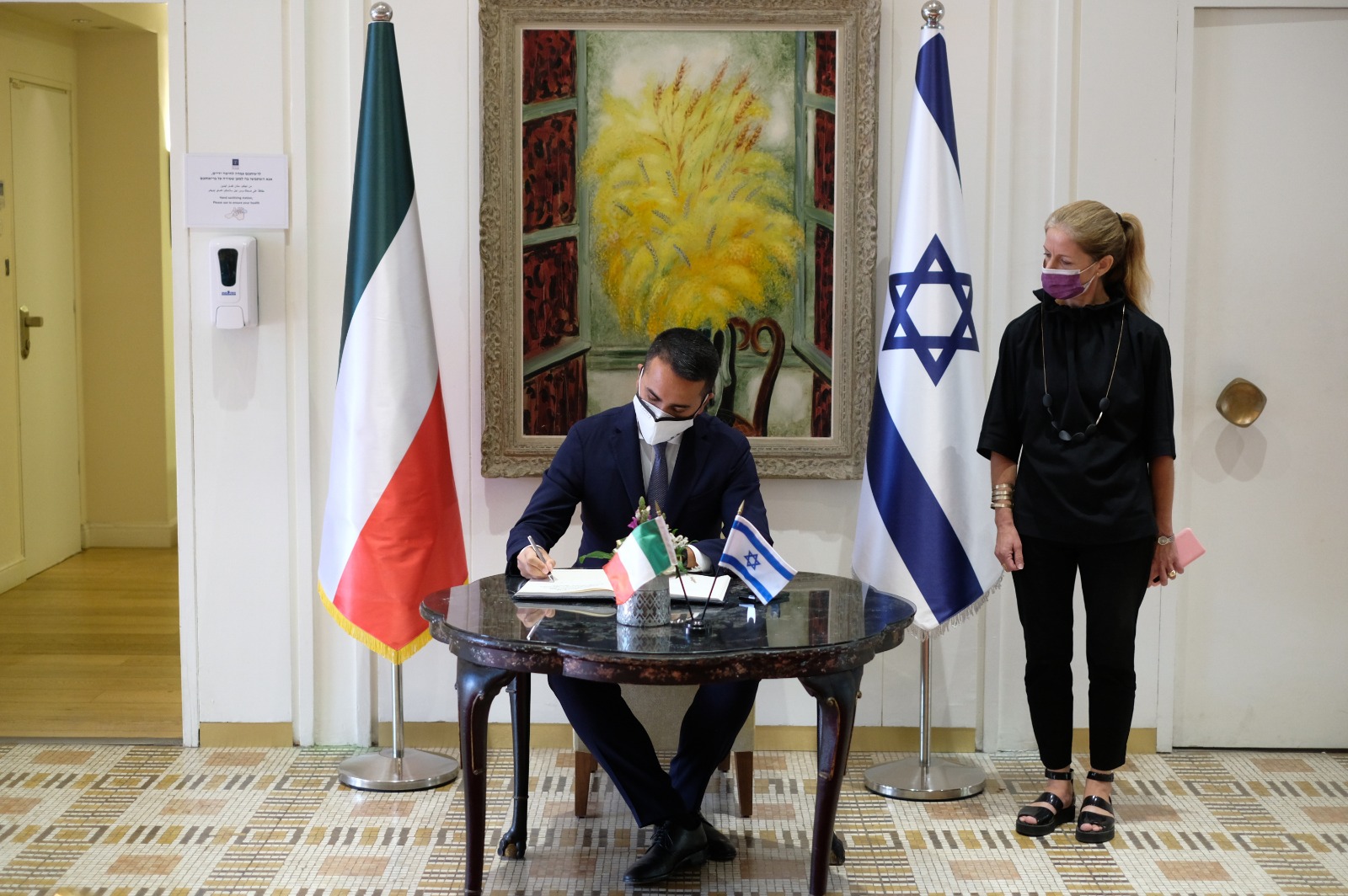Italy’s foreign minister Luigi Di Maio travelled to Israel (and the West Bank) for a string of high-level meetings. Covid-19 vaccine, international diplomacy and renewable energy: here’s what happened
On Thursday Italy’s foreign minister Luigi Di Maio touched down in Israel for the first time since his party, the Five Star Movement, rose to power.
Mr Di Maio seems to have left behind the Movement’s past positions on the Middle Eastern conflict, often at odds with the Israeli line. He took care to visit the Yad Vashem (the World Holocaust Remembrance Center) and the Wailing Wall, where he wished for humanity to overcome the ongoing pandemic.
Most notably, Mr Di Maio followed his German equivalent Heiko Maas in promising Israel the right to purchase doses of a Covid-19 vaccine – a stretch of the EU rule prioritising access to member states.
A few weeks ago, Mr Maas and the German health minister Jens Spahn had promised as much in light of their country’s profound connection with Israel, building up from the horrors of the Holocaust.
Mr Di Maio sought to align Italy with Germany in considering Israel a EU member state in terms of vaccine purchasing rights. Israeli sources told Formiche.net that the vaccine being offered is the Oxford-AstraZeneca version, which will be produced by IRBM in Pomezia, near Rome.
Interviewed by ANSA, the Israeli ambassador to Italy Dror Eydar described the sanitary collaboration between the two countries as “close”. He pointed at the recent signing of a memorandum of understanding between the Ness Ziona Biology Institute (where the research for a Israeli Covid vaccine is underway) and the Careggi Medical Center in Florence.
During the day, Mr Di Maio met with the Israeli prime minister Benjamin Netanyahu and President Reuven Rivlin. He then entered extensive talks with his Israeli counterpart, Gabi Ashkenazi, with the two touching upon international politics and commercial partnerships.
After the vaccine, the two focussed on cultural collaboration between Italy and Israel. They signed for the renewal of a deal dating back to 1973, encompassing education, science, culture and sport. The deal allows for partnerships in joint cinematic productions, joint research, and Shoah-related education.
Then, they zeroed in on foreign policy, touching upon Syria and Libya. Again, Mr Ashkenazi asked that Italy recognised the political arm of Hezbollah, the Lebanese Shiite movement, as a terrorist organisation. He then thanked Italy for its role in the UN mission UNIFIL in Syria.
Mr Di Maio then expressed his hope that Israeli’s normalisation of relations with the Arab world (known under the umbrella term of the Abraham Accords) would give a fresh impulse to the Israel-Palestine peace process and bring about a two-State solution.
Mr Ashkenazi expressed optimism regarding the Accords and sorrow for Palestine rejecting them wholly. He addressed the Palestinian Authority, asking it to start negotiations “without preconditions” and pre-emptively thanked Mr Di Maio for his role in delivering this message to Ramallah during his visit on Friday.
Finally, the pair got down to business, allowing major Italian energy infrastructure company Snam to enter the Israeli market by signing major deals with three local companies. Somewhat interconnected with each other, the commercial accords will foster sustainable and innovative developments in the mobility and hydrogen-related industries.
The first deal was brokered with Delek Drilling, the biggest Israeli company for natural gas extraction, and Dan, the national transport company. The three will partner up to explore sustainable travel (mainly buses and heavy machinery) based on liquefied natural gas.
Contextually, the Italian company also signed a memorandum of understanding with Dan to evaluate projects relating to sustainable mobility based on renewable energy, namely biomethane, hydrogen and electricity.
Finally, Snam also partnered up with the Israeli start-up H2Pro, the cradle of a technique (known as E-TAC) capable of producing 30% more green hydrogen from water than regular electrolysis. The partnership will entail joint R&D and branching out into the European and Israeli markets for renewable energy.
Mr Di Maio will carry out official visits in Ramallah throughout Friday.








